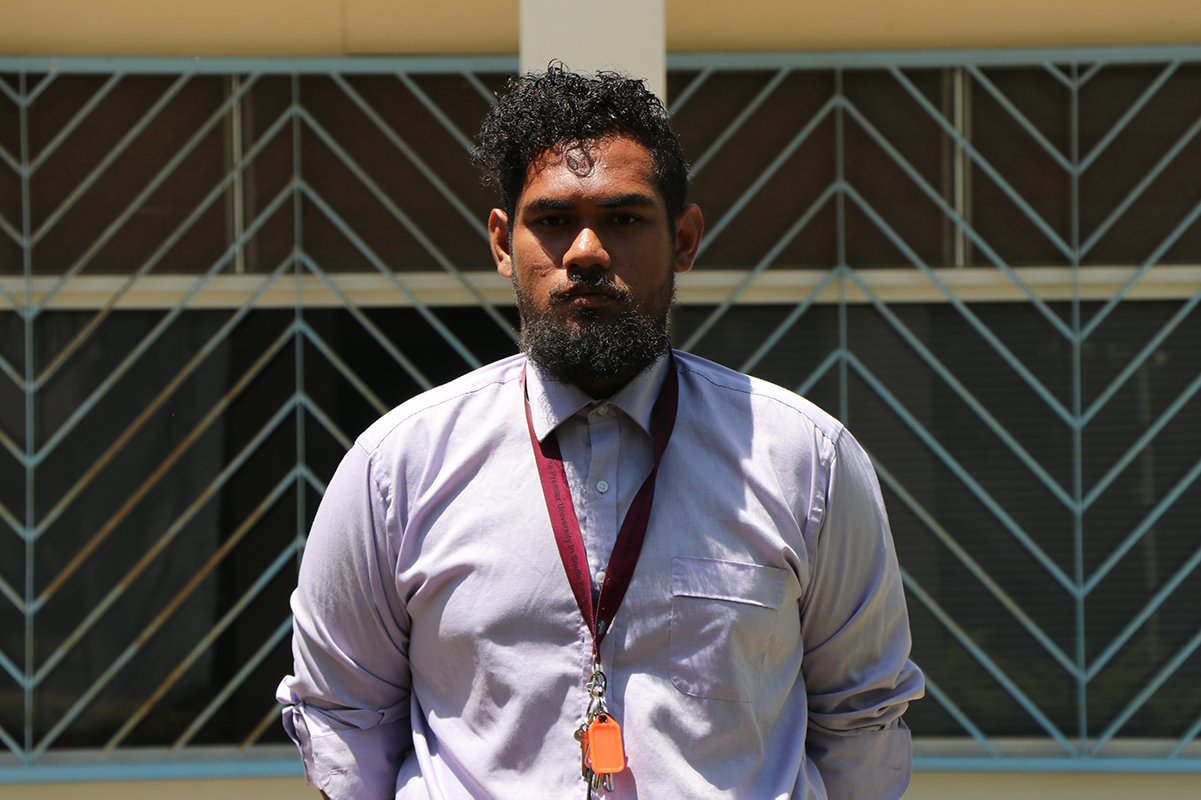Mapusaga Tanuvasa has seen the realities of inequity and exclusion up close and personal.
“I’ve witnessed my mother,” he said, reminiscing about his childhood, “she has a degree, but no matter how many years and how hard she worked they never promoted her to anything above an officer.”
“They gave her the extra workload, but she never got promoted to manager until very recently.”
While this was not a unique situation, it was discordant with Mapusaga’s sense of justice and sparked a desire to see all Papua New Guineans given a level playing field to fulfil their potential, so it is not entirely surprising that he decided undertake a law degree at the University of Papua New Guinea (UPNG).
This year, his fourth and final of study, he was given an opportunity to pursue gender equity, oppose discrimination and permanently influence campus life.
Mapusaga was one of 35 UPNG students and staff invited to form a committee to develop the Gender Equity and Social Inclusion (GESI) Policy and mechanisms for it to be enforced.
The committee researched international best practice and drafted a policy specific to the UPNG context.
Committee members were tasked to work on specific sections of the policy, including disability, workplace harassment, gender-based violence, sexual harassment, and safety and security.
The new approach echoes the PNG Government’s own commitment to equality, including through the Gender Equity and Social Inclusion Policy.
The UPNG Policy, which was developed with support by the Papua New Guinea-Australia Partnership, has the full backing of the university’s executive and is expected to be finalised in early 2020.
In June, speaking ahead of a UPNG-hosted discussion event on gender equity, vice-chancellor Professor Frank Griffin said that women and men need to work side-by-side.
The qualities of individuals need to be acknowledged rather than their superficial differences.
“Working together allows the country to move in a direction where gender equity and gender equality will become more prominent in the years to come,” Professor Griffin said.
“To be a free thinker, at the university level, it doesn’t matter if you are male or female.”
For Mapusaga participation on the GESI committee was an opportunity to promote equality and inclusion as a responsibility to be shouldered by all people.
He knows that now the policy is on paper the hard work is in its implementation, which will address the issues of today and improve life for future students.
“The GESI Policy is written but it must also be implemented,” he said.
“I don’t think about what I would do tomorrow or next year, I think about what would happen for the future generations when they come into the university.
“What we need to change first and foremost is the mindsets,” he continued.
“It just takes a few likeminded individuals – starting with just one – and if that person is capable of influencing other people we can form a domain of influence.”
He identified the lecturers as key influencers of student attitudes – viewing them as crucial advocates and allies for gender equity and social inclusion.
“Thousands of students pass through the university every year – thousands leave educated,” Mapusaga said.
“You can change the mind of thousands of people or more in your lifetime being a lecturer.”
As his time as an undergraduate law student draws to a close, Mapusaga can be proud of the role he has played in the promotion of gender equity and social inclusion.
The hope is that the GESI Policy will remain as an important guide to attitudes and behaviour long after he’s left – a positive legacy for the institution.
Success will mean people are not excluded or unfairly treated because of their sex or gender, special needs, sexual orientation, cultural background, religious views, medical conditions or any other perceived difference.
It is certain that Mapusaga’s passion for equality and justice won’t waver – he’ll carry that with him wherever he goes.
“I’ve been writing about discrimination since my first year at UPNG,” he said.
“I don’t care if it takes me a year or many years, it’s something I want to keep pushing forward.”
For further information, including access to related materials, please contact the Australian High Commission media team: +675 7090 0100

Mapusaga Tanuvasa.
